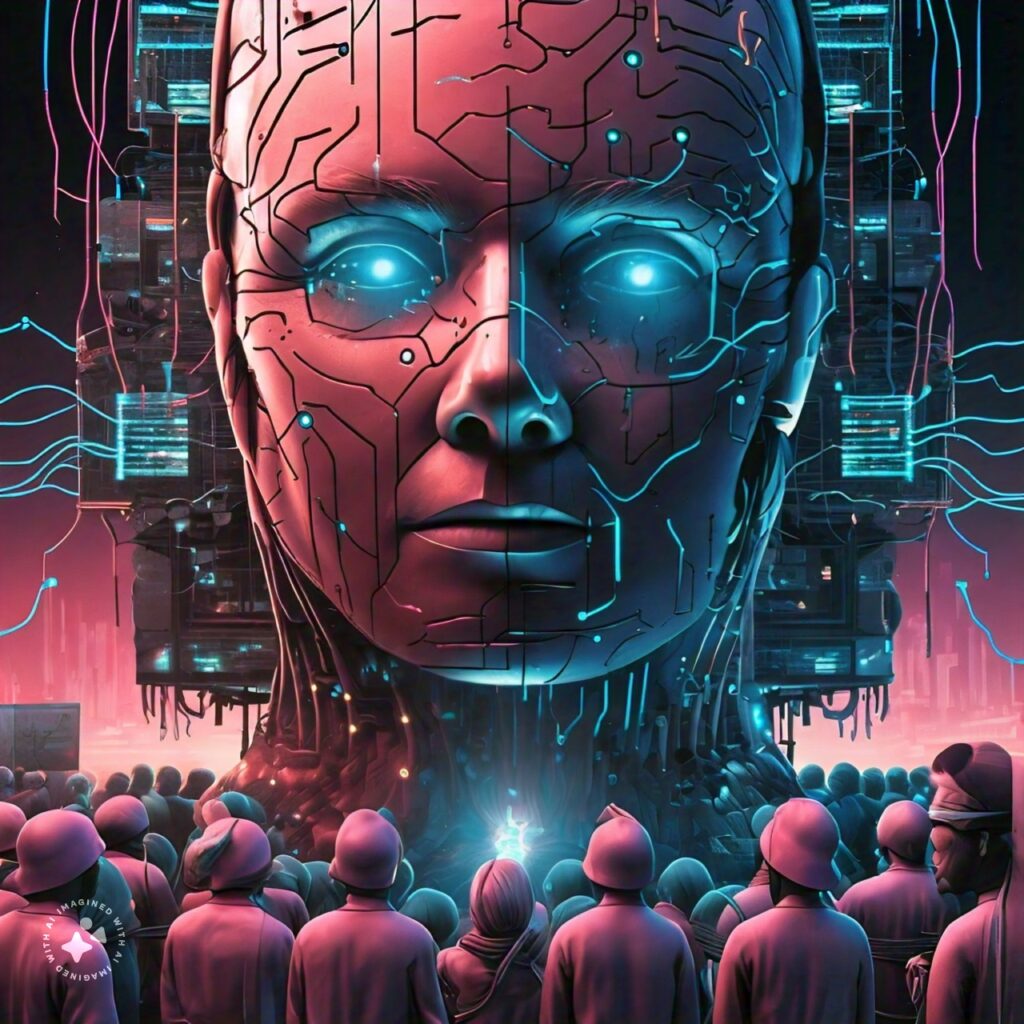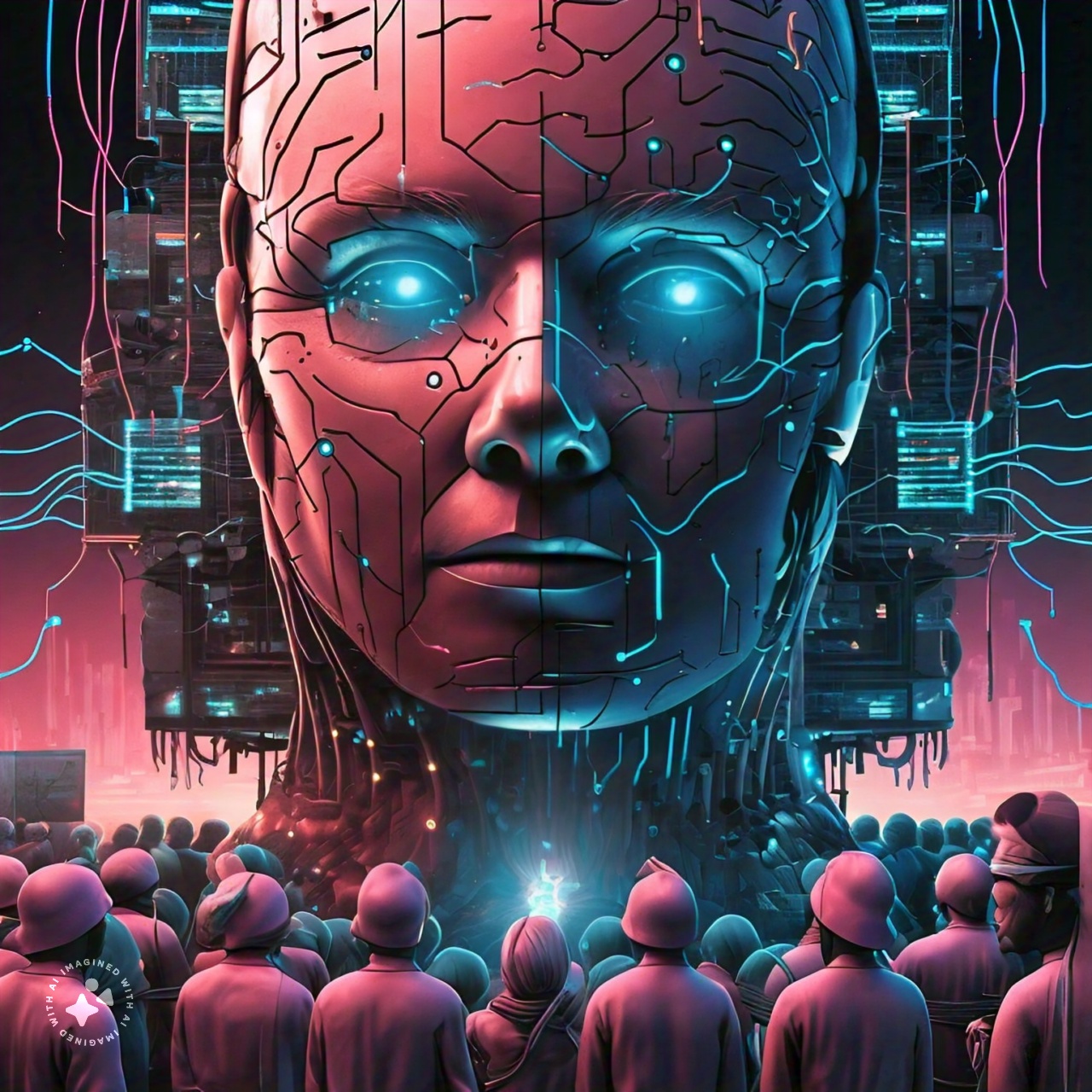[et_pb_section fb_built=”1″ _builder_version=”4.16″ global_colors_info=”{}”][et_pb_row _builder_version=”4.16″ background_size=”initial” background_position=”top_left” background_repeat=”repeat” global_colors_info=”{}”][et_pb_column type=”4_4″ _builder_version=”4.16″ custom_padding=”|||” global_colors_info=”{}” custom_padding__hover=”|||”][et_pb_text _builder_version=”4.25.0″ background_size=”initial” background_position=”top_left” background_repeat=”repeat” global_colors_info=”{}”]
 The Urgent Need to Safeguard AI for Democracy
The Urgent Need to Safeguard AI for Democracy
Syndicated by Brego.com, Op Ed
by Edmund J. Janas, II
Let’s start with some good news: the recent indictment of fake Republican electors in Arizona dealt a significant blow to attempts by former President Trump and his allies to overturn a free and fair election. These state charges can’t simply be brushed aside with a presidential pardon, representing a major legal obstacle to Trump’s potential return to power.
But here’s the sobering reality – this indictment may never have happened if Arizona Democratic Attorney General Kris Mayes hadn’t narrowly won by a mere 280 votes, under a different AG, one perhaps hostile to upholding the will of voters, the audacious scheme to send bogus pro-Trump electors to Congress could have been conveniently swept under the rug.
Look, I don’t want to sound alarmist, but this is just one example of a deeply concerning trend – the flagrant disregard for democratic norms, long-established institutions, and even the rule of law itself by certain bad actors hellbent on clinging to power at all costs. From Trump’s unprecedented refusal to commit to a peaceful transfer of power, to the Supreme Court’s rulings that increasingly seem to prioritize partisan interests over judicial independence, we’re witnessing the erosion of crucial guardrails protecting our democratic system.
And it gets worse. We’re seeing a systematic rollback of civil rights and liberties through a range of regressive policies. Whether it’s stripping reproductive freedoms, undermining the right to protest, or potentially criminalizing undocumented immigrants, an “us vs them” mentality has taken hold that seeks to privilege the narrow interests of a select few over the majority.
But in this polarized political climate, one deeply concerning question remains largely unasked: Why are people willing to risk professional ruin, bankruptcy, and incarceration to corrupt the system for personal gain or ideological reasons?
The development of advanced artificial intelligence capabilities creates a particularly insidious variable in this equation. If left unchecked and allowed to be steered by unethical actors, AI could become a powerful instrument of oppression and social control under authoritarian forces. Even seemingly innocuous critiques like Elon Musk calling ChatGPT “woke” reveal an underlying current of technologists anthropomorphizing AI systems and overlooking the existential peril of advanced AI perpetuating societal biases and reinforcing the power structures of the ruling class.
As AI develops further, the next few years will be pivotal in determining whether these technologies remain a force for good for all of humanity, or are contorted into tools of high-tech oppression by modern-day fascists and authoritarians. Ethical AI governance, protecting democratic institutions, and staunchly upholding civil liberties must be paramount priorities. An unwavering commitment to justice, equality, and human rights for all citizens – not just the select few – is crucial to ensuring these world-changing innovations benefit society equitably rather than entrenching the interests of a technologically-empowered minority.
AI alone isn’t what’s fueling fascism. But left unchecked, it could turbocharge many of the underlying issues that allow these dangerous movements to take root. Economic anxiety from job losses due to automation, social division reinforced by algorithm-driven echo chambers, and powerful mass surveillance enabled by AI – these could all exacerbate the very inequalities, polarization, and loss of faith in institutions that fascists exploit. History shows us that times of economic hardship, political gridlock, and eroding trust in democracy create the perfect conditions for authoritarian, “us vs. them” ideologies that scapegoat vulnerable groups to thrive.
At the end of the day, while AI’s role is hugely concerning, it’s just one piece of a much larger puzzle of technological, economic, and social forces threatening democratic values if left unaddressed. By getting serious about ethical AI governance, tackling inequality, bridging divides, and restoring faith in democracy, we can cut off fascism at its roots while ensuring these world-changing AI capabilities benefit all of humanity instead of oppressing it. The path ahead demands vigilance, unity, and an unwavering commitment to justice – not just for a powerful few, but for all of us. Because the future belongs not to the forces of regression and hate, but to the boundless potential of human creativity and ingenuity guided by the enduring principles of freedom, equality, and truth for all.
[/et_pb_text][/et_pb_column][/et_pb_row][/et_pb_section]
